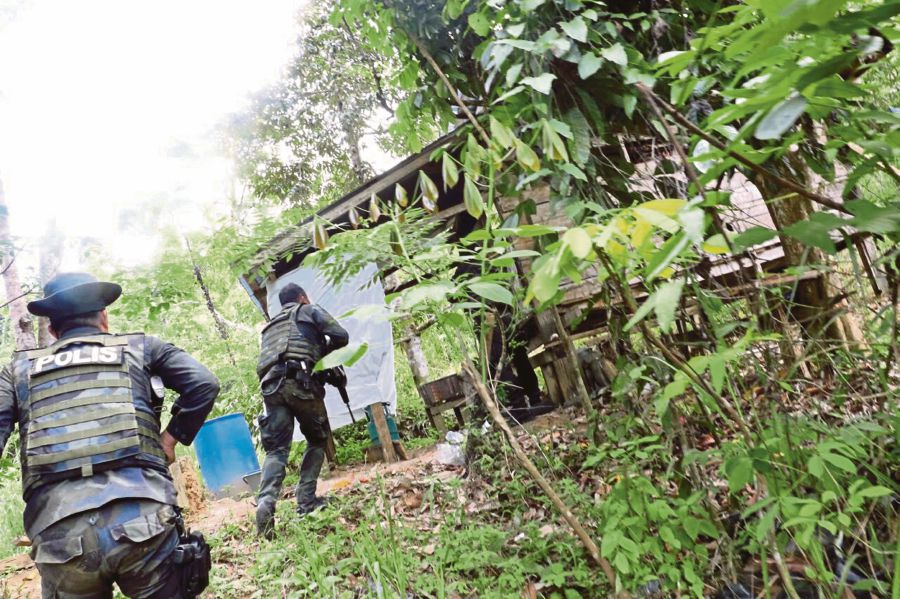THE consecutive fall of Islamic State strongholds in Raqqa and Marawi four months ago produced some respite in the global fight against terrorism. This, unfortunately, is not indicative of the winding down of the threat in Southeast Asia.
Malaysia, in particular, continues to face this security challenge from multiple sources. Returning foreign fighters, infiltrators, sympathisers, recidivists and remaining radical groups each presents a different degree of burden that the country’s security apparatus must address. The defeat of IS may even inspire the militants in Malaysia to re-adjust and evolve their strategies to carry their agenda forward.
As we tread this zone of untested water, the popular adage that a terror attack “is not a question of if, but when” remains true in Malaysia today. As important as it is to remind Malaysian society of their role in preventive measures, we must also broach the subject of the nation’s resilience in the aftermath of a hypothetical terror attack.
Social resilience, in a general term, could be defined as a community’s collective ability to endure the destabilising impact and maintain cohesiveness at a time of great adversary, such as a terror attack. Although Malaysia has been spared from any major-scale terrorism activities, it does not allow for any measurement of the society’s probable reaction in the wake of an attack.
Indeed, the attack on the Movida bar in Puchong two years ago triggered minor chatter in some online platforms. Yet, this is not a template reaction that we can apply to possible attacks of varied scale in the future. There is no iron-cast guarantee that KLites, for example, will manage to maintain their cohesion if an attack was launched anywhere in Kuala Lumpur’s golden triangle.
The lack of data on our social resilience hinders a projection in such a scenario. However, there remains a distinct probability that city dwellers would succumb to the terror unleashed, the result of which would be unpleasant. If this were the case, then not only would panic spread across social media like a pandemic, society might also stop functioning as distrust increases and fear reigns among the people.
In the medium to long term, such dysfunction could evolve into a paranoia which feeds on existing political, economic and social insecurities. For a multi-racial country like Malaysia, this might manifest along ethnic and religious lines, which could undermine the nation’s integrity. Preventing a worst-case scenario is, thus, a matter of importance. The current pause in our struggle against violent extremism accords us a window to develop our social resilience that might be useful in tomorrow’s uncharted zone.
Since social resilience remains an elusive concept, the way forward is less definite than we hope it to be. Fortunately, examples from Malaysia’s closest neighbours could provide some pointers. Like Malaysia, Singapore has also been blessed with the absence of major terrorist activities. Acknowledging the importance of the whole-of-nation approach in fighting terrorism, the Singaporean government complements the effort of its security forces with a national movement called SGSecure.
Through three prime directives (stay alert, stay united and stay strong), SGSecure seeks to empower society in preventing and addressing terrorism threats that might emanate internally and externally. This is realised through training, demonstrations and public engagement that the team regularly conducts in community centres or town halls, where people are taught how to act or administer assistance at a time of crisis.
Indonesia presents another example altogether. Multiple terrorist attacks in the country have gradually hardened the people’s mentality which forms the core of Indonesia’s resilience. Public attitude towards terrorism seems to have progressed from the early 2000s to mid-2010s. In the earlier period, people even expressed apprehension at visiting shopping malls or hotels after high-profile bombings in Bali and Jakarta.
An opposite reaction was clearly seen in the aftermath of the January 2016 Sarinah attack when people trivialised the perpetrators’ acts and immediately came up with the hashtag #KamiTidakTakut (#WeAreNotAfraid) in a clear act of defiance. Reports also show that people in the vicinity either continued their business as usual or eagerly observed the neutralisation of terrorists by the police in Counter Strike style.
Despite this commendable progress, it is yet to be established if the same people could emulate such courageous attitude if they were directly victimised by an attack. What lessons exemplified by the two countries Malaysia must learn that what works in Singapore and Indonesia might not be applicable in Malaysia. Would it be practical, for example, to replicate Singapore’s model of nationwide surveillance and grassroots engagement, considering Malaysia’s larger population and geographical size? Similarly, how would Malaysia’s unique ethnic composition facilitate or hinder the organic construction of social resilience like the one attained by our Indonesian neighbours?
Such questions need to be addressed in creating Malaysia’s brand of social resilience in this “post-IS” era. Although we are still unclear of how the next generation of terrorists might alter existing modus operandi, our social resilience should not allow us to be defeated by the terrorists’ petrifying horror.
The long peace that Malaysia enjoys is not a privilege, but an effort that we all have contributed to. Together as a nation, we must strive forward to develop our resilience if we were to sustain this peace that we have taken for granted.
This article first appeared in New Straits Times on February 27, 2018.




